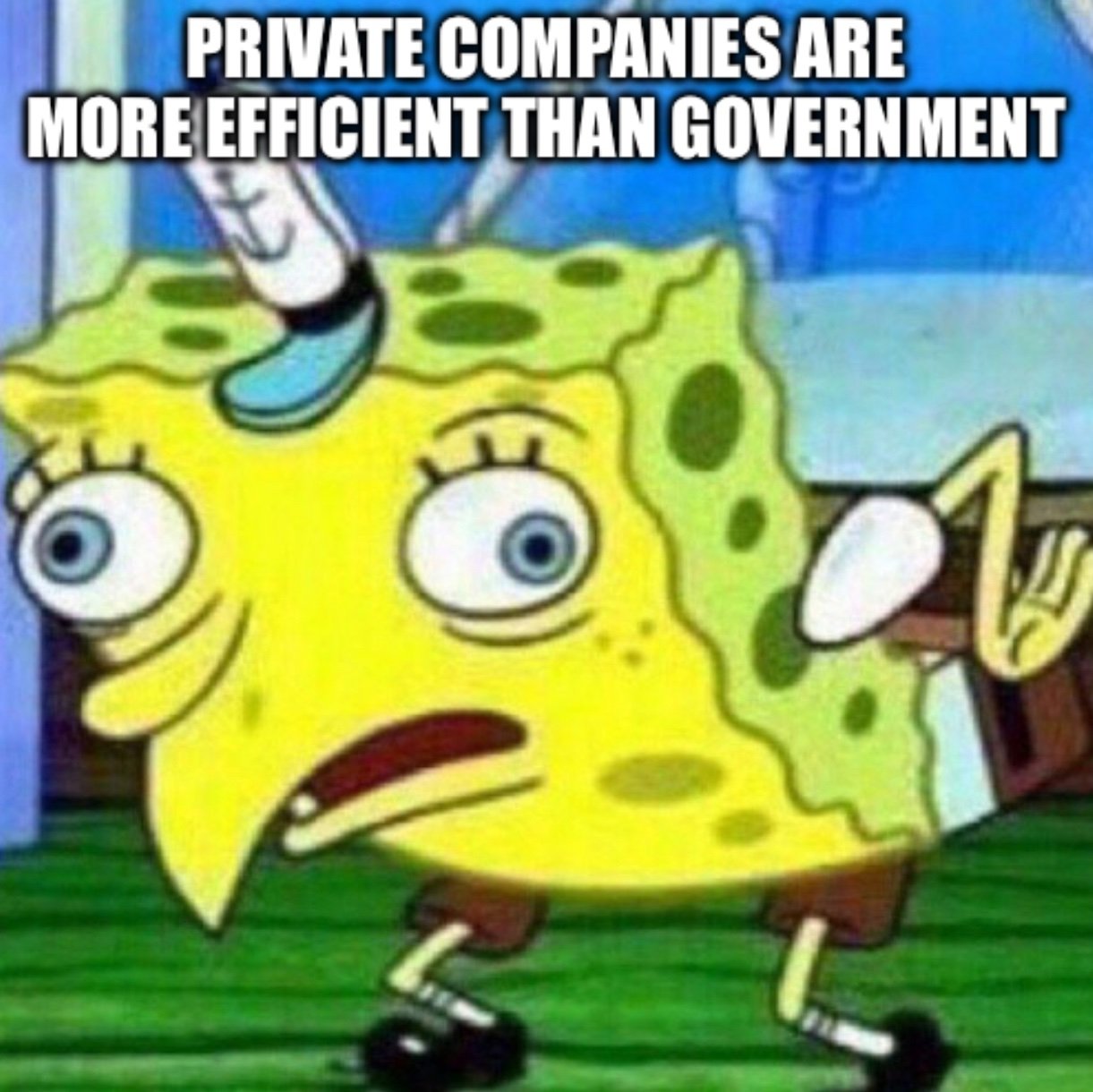this post was submitted on 03 Dec 2023
1186 points (91.6% liked)
Memes
45581 readers
1 users here now
Rules:
- Be civil and nice.
- Try not to excessively repost, as a rule of thumb, wait at least 2 months to do it if you have to.
founded 6 years ago
MODERATORS
you are viewing a single comment's thread
view the rest of the comments
view the rest of the comments

I think the issue is large organizations are inefficient and inflexible, be they government or corporates.
You want small lean groups with a lot of autonomy.
That's a survivorship bias. Running a small group is easier, of course, than a large organization (though I'm not sure how much this get offset by the large organization having more resources and the advantage of size), but I suspect there is something else going on there. When there are small groups, there can be many small groups, and the inefficient ones can die leaving only the successful efficient ones. Large organizations are too often "too big to fail".
It's not just that. You want businesses to be able to fail if they are being run poorly. That's something that's a lot harder with government agencies, state owned enterprises, and large companies.